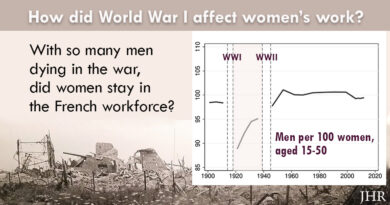Do Conscription and Military Service Lead to More Incarcerations?
It is not uncommon for the media to link veterans’ war experience to postwar crime offenses. But does wartime military service really cause veterans to have higher incarceration rates? Also, military conscription can cause social resistance and unrest, but does a draft result in higher incarcerations for those exposed?
Xintong Wang and Alfonso Flores-Lagunes analyzed the causal impact of the U.S. Vietnam War draft lotteries on the incarceration rate of draft avoiders—men eligible to draft but who avoided military service. Historical accounts have documented prevalent draft avoidance behaviors and their consequences, such as incarceration for draft evasion. Employing novel statistical methods, the authors show that being eligible to draft increased the incarceration rate of draft avoiders 10–20 years after the draft.
The authors then examined the causal effect of Vietnam War military service on veterans, particularly on volunteers—those who served regardless of whether they were drafted. Past studies of Vietnam veterans mainly focused on those who would only serve if drafted, which represents only 20% of veterans, and found no effect of military service on incarcerations.
In contrast, the authors found that military service caused substantially higher incarceration rates for volunteer veterans. They also found suggestive evidence that relevant mediating factors of this effect included pre-service drug use, criminal justice contacts, and disadvantaged family background. Combat exposure, a commonly believed mediating factor, seemed to be unimportant. These results imply substantial long-run incarceration costs to veterans, draft avoiders, and society from this military conflict that had been previously overlooked, and that should be considered and accounted for in evaluating the costs of other military conflicts.
Read the study in the Journal of Human Resources: “Conscription and Military Service: Do They Result in Future Violent and Nonviolent Incarcerations and Recidivism?” by Xintong Wang and Alfonso Flores-Lagunes.
***
Xintong Wang is assistant professor at the Department of Accounting, Economics, and Finance, Slippery Rock University of Pennsylvania (xintong.wang@sru.edu; @XintongWang9). Alfonso Flores-Lagunes is professor at the Department of Economics and Center for Policy Research, Syracuse University (afloresl@syr.edu, @A_FloresLagunes).

